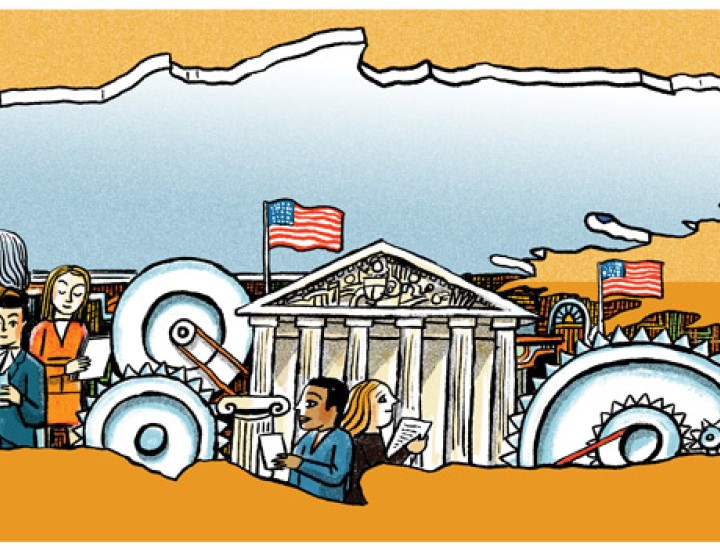Sheila Bair and Gaurav Vasisht Comment Letter on Proposed Revisions to the Volcker Rule

Volcker Alliance board member Sheila Bair and Senior Vice President and Director of Financial Regulation Gaurav Vasisht recently submitted a letter to the Board of Governors of the Federal Reserve System and to other regulatory agencies commenting on the proposed revisions to section 619 of the Dodd-Frank Wall Street Reform and Consumer Protection Act of 2010, commonly known as the Volcker Rule.
Enacted in the aftermath of the worst financial crisis since the Great Depression, the Volcker Rule precludes government subsidized banks from making risky bets with depositor funds or working against their customers’ interests. Specifically, the rule prohibits banks from engaging in speculative trading activity—or “proprietary trading”—and from investing in hedge funds or private equity funds.
Bair and Vasisht make three overarching points in the letter.
First, the authors note that the proposed revision introduces additional risk in the financial system precisely when policymakers should be pursuing countercyclical policies designed to strengthen the financial system. They observe that the proposal “narrows the scope of oversight of the proprietary trading prohibition, eliminates specific analysis requirements that are intended to prevent proprietary trading from occurring under the guise of legitimate underwriting, market-making or hedging activity, and reduces or otherwise limits important compliance and reporting obligations.”
Second, the authors remark that there is no apparent justification for the proposal. As they note, “the U.S. is in its second longest economic expansion in recorded history, far outpacing the post-crisis recoveries of other advanced economies. Bank profits are soaring, as banks pay out billions of dollars in dividends to their shareholders. Trading volume is near an all-time high, bank loan growth is outpacing nominal GDP growth, market liquidity remains ample, and the unemployment rate is the lowest it has been in nearly 50 years, hovering at 3.7 percent.”
Third, they point out that regulators have provided no data or analysis in support of their proposal, a topic on which Bair and Vasisht co-authored a September op-ed in the Wall Street Journal. They warn that the “seemingly unprecedented level of opacity stifles public debate and input in the rulemaking process, giving self-interested industry advocates who do have access to information a distinct advantage.”
Bair and Vasisht recommend that “instead of weakening the Volcker Rule’s implementation, regulators should enhance its supervision and enforcement,” observing that “recent news reports highlight instances of banks making enormous profits and suffering outsized losses from trading activities, apparently without much scrutiny from regulators.”
The authors propose that before any specific policy changes are considered, regulators should consolidate, standardize, study and release, in an appropriately anonymized format, the data on bank trading metrics currently being collected in various formats by five different agencies. This step, Bair and Vasisht observe, “would allow the public to understand the impact of the rule on trading activity, gauge its effectiveness in curbing risky speculation, understand how effectively the rule is being enforced, and monitor emerging trends and potential risks in the trading operations of the largest banks.” It would also “promote the type of rigor that should be necessary before amending what is one of the most significant financial reforms to have emerged from the financial crisis.”

